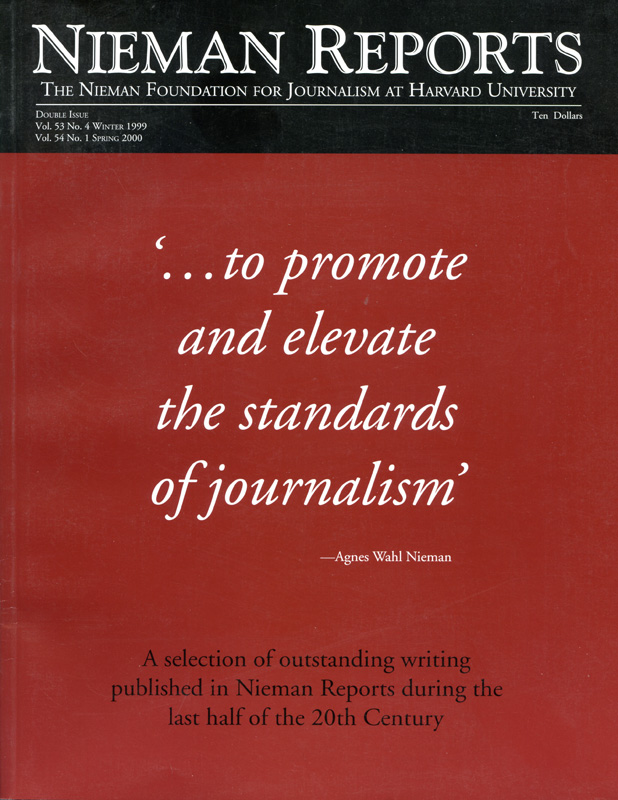[This article originally appeared in the June 1970 issue of Nieman Reports].
…One day when I was with the Washington bureau of The New York Times, our Supreme Court reporter, Anthony Lewis, came in with a story that he thought would require an unusual touch. The “story,” as he saw it, lay not in the majority opinion but in an unusual dissent by Justice Black. So after we talked it over, he wrote a story which, after recording the majority opinion in the first paragraph, went on something like this:
“In a passionate and despairing dissent, Justice Hugo Black rejected the majority opinion.”
Somehow or other this sentence escaped the copy desk gnomes in New York but it did not escape a reader in Seattle, and he wrote to the editors of the Times.
“I worked for the A.P. in the 1930’s and I know that ‘passionate’ and ‘despairing’ are editorial words and you can’t use them in a news story. Shame on the Times for letting adjectives like these get into its news columns.”
This letter was forwarded to me with a succinct note from two of my betters in New York saying: “We agree.”
It never pays to argue with your masters, but in this case I wrote back:
“It is possible that this alumnus of the A.P. in Seattle has a better ‘feel’ for the story than we had in Washington. But before I cleared the offending passage, I read Justice Black’s dissent—all 16,000 words of it. And what impressed me from beginning to end was the passionate and despairing tone. And because passion and despair are seldom encountered in a judicial opinion, I thought this was news and worthy of noting in the Times.”…


